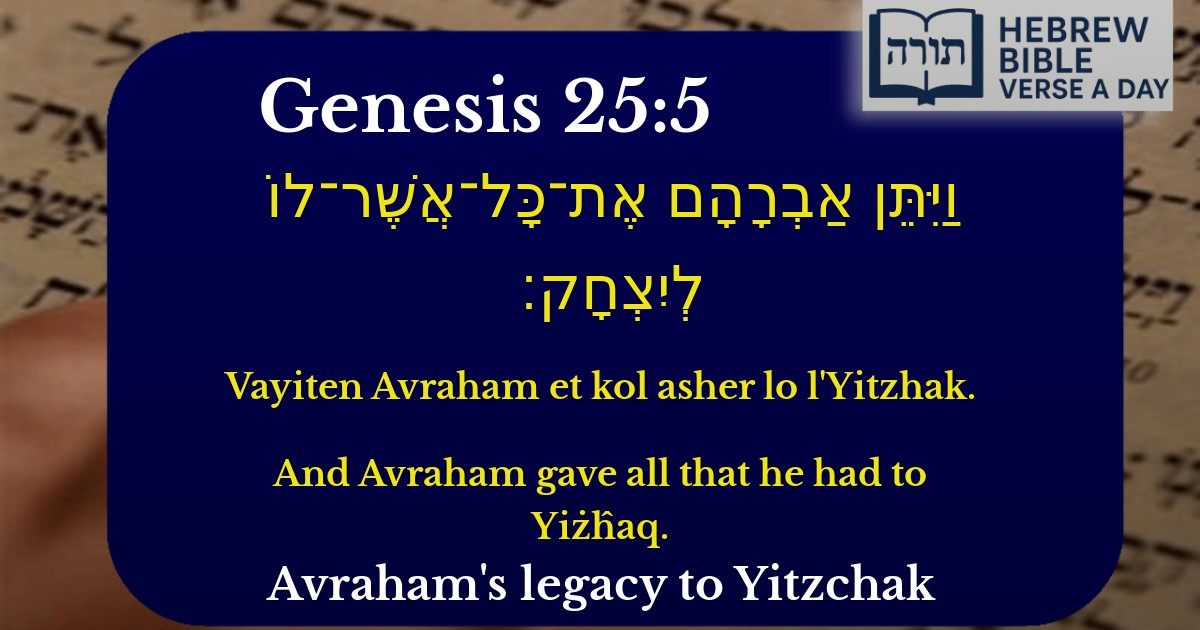Join Our Newsletter To Be Informed When New Videos Are Posted
Join the thousands of fellow Studends who rely on our videos to learn how to read the bible in Hebrew for free!
Hebrew Text
וַיִּתֵּן אַבְרָהָם אֶת־כָּל־אֲשֶׁר־לוֹ לְיִצְחָק׃
English Translation
And Avraham gave all that he had to Yiżĥaq.
Transliteration
Vayiten Avraham et kol asher lo l'Yitzhak.
Hebrew Leining Text
וַיִּתֵּ֧ן אַבְרָהָ֛ם אֶת־כׇּל־אֲשֶׁר־ל֖וֹ לְיִצְחָֽק׃
וַיִּתֵּ֧ן אַבְרָהָ֛ם אֶת־כׇּל־אֲשֶׁר־ל֖וֹ לְיִצְחָֽק׃
🎵 Listen to leining
Parasha Commentary
📚 Talmud Citations
This verse is not quoted in the Talmud.


Inheritance and Spiritual Legacy
The verse (Bereishit 25:5) states that Avraham gave all that he had to Yitzchak. Rashi explains that this refers not only to material possessions but also to the spiritual inheritance—specifically, the beracha (blessing) of the covenant with Hashem. This aligns with the earlier promise in Bereishit 17:19, where Hashem designates Yitzchak as the heir of Avraham's legacy.
Exclusion of Yishmael
Ramban (Nachmanides) notes that Avraham deliberately excluded Yishmael from this inheritance, as Yitzchak was the son of the covenant (ben ha-brit). The Midrash (Bereishit Rabbah 61:6) elaborates that Avraham acted under divine instruction, ensuring that only Yitzchak would carry forward the mission of spreading monotheism.
Material vs. Spiritual Wealth
The Talmud (Sanhedrin 91a) discusses that "all that he had" includes both physical assets and intangible blessings. The Kli Yakar (R’ Shlomo Ephraim of Luntschitz) emphasizes that Avraham prioritized transmitting his spiritual values—faith in Hashem, kindness, and devotion—over mere wealth.
Yitzchak as the Chosen Successor
The Malbim (R’ Meir Leibush Weiser) highlights that Yitzchak’s selection was not arbitrary but rooted in his spiritual readiness. Unlike Yishmael, who represented physical prowess (Bereishit 16:12), Yitzchak embodied the traits of mesirut nefesh (self-sacrifice), as demonstrated at the Akeidah (Bereishit 22).